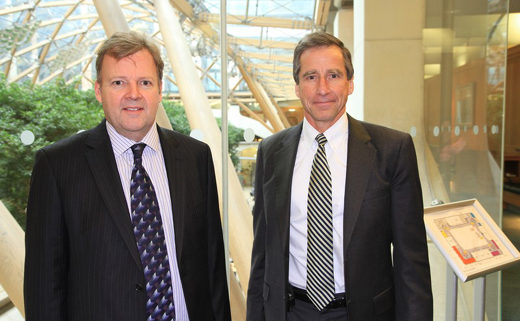How can the UK become a world leader in recycling plastics?
MBA Polymers is calling for a shift in recycling policies to ensure recycling in the UK becomes an economically viable, sustainable enterprise. We explore the opportunity for the UK to become a world leader in the transformation of plastic waste into low carbon raw materials, and explain why government intervention is vital in making this happen.
Some 280 million tonnes of plastic are produced annually, yet only an estimated 10% is currently recycled. Despite advances in recycling technology, the UK still lags behind other European nations in recycling post-consumer plastic waste, with recycling rates standing at 20% in 2011.
Some 40% of household waste is now being recycled, according to the Department for the Environment, Food and Rural Affairs (DEFRA), yet in 2012 it was reported that 240,000 tonnes of plastic bottles were sent to landfill by UK households with access to kerbside plastic recycling collection. Meanwhile, WRAP estimates that the UK exported 684,000 tonnes of plastic waste to China in 2010 (where recycling methods can cause untold damage to the environment), the equivalent of 100 containers leaving its shores daily.
The current UK government aspires to be the country’s ‘greenest ever’ and has set tough recycling targets for the period to 2017. Plastic packaging (the most voluminous plastic waste culprit) will need to be recycled at a rate of 42% to meet these goals.
And yet, plastic is still not being recycled at the same rate as other materials. Despite being more valuable than steel on a price per weight basis, nearly 90% of steel is recycled, vs. 10% of plastic, as we have seen. In order to bridge this giant gap and put plastic recycling on the map, more must be done at a policy level to create the economic conditions needed for a flourishing domestic recycling market.
Our CEO Nigel Hunton and founder Mike Biddle recently presented MBA’s thoughts on the challenges and opportunities for plastics recycling in the UK to more than 100 politicians, environmental groups and business leaders at Westminster.
Mike outlined the scale of the plastics challenge and explained MBA Polymers’ work in delivering recycled plastic raw materials made from post-consumer waste plastics. He highlighted the sustainable business model that could help the UK become a world leader in recycling plastics waste and set the country on a path to a circular economy: using plastics waste effectively, saving energy and cost in the manufacturing process (recycled plastics can save up to 80% of CO2 compared to virgin polymer production from oil) and selling more sustainable products.
Nigel then called on MPs to introduce a 0% VAT incentive to companies selling products made from recycled materials. A detailed question and answer session followed, a summary of which can be found on our website.
By treating waste in the UK as a resource, and recycling it in a cost-effective, environmentally sound way, the country could: attract jobs and investment, reduce its dependence on fossil fuels and forge a reputation as an innovator in the waste treatment space, fuelling further technological innovations.
The technology does exist in the UK to recycle complex waste streams, but a lack of education and publication knowledge, a patchy response to EU legislation on waste, a reliance on landfill and incineration instead of ‘full recovery’ and still less than perfect collection rates, are slowing progress.
We believe the cost of recycling will decrease in the future with economies of scale and improved technologies, but we need regulatory assistance and other incentives, such as tax waivers, to help make this happen. We need an incentivised market, with legislation designed to encourage recycled content in products, and more rigorous auditing of overseas waste processors.
As the British Plastics Federation (BPF) outlines in its new proposal to catalyse a thriving market for recycled plastics in the UK, there is support from brand owners for high quality recycled materials, particular in an era where telling a ‘sustainability story’ is becoming more mainstream in brand marketing. To accelerate the volumes of recycled materials available to UK manufacturers, incentives are urgently needed, the organisation says.
For more on MBA Polymers’ views on incentivising markets for recycled plastics, see www.mbapolymers.com/home/qaa for our founder Mike Biddle’s responses to our Westminster audience’s questions.

